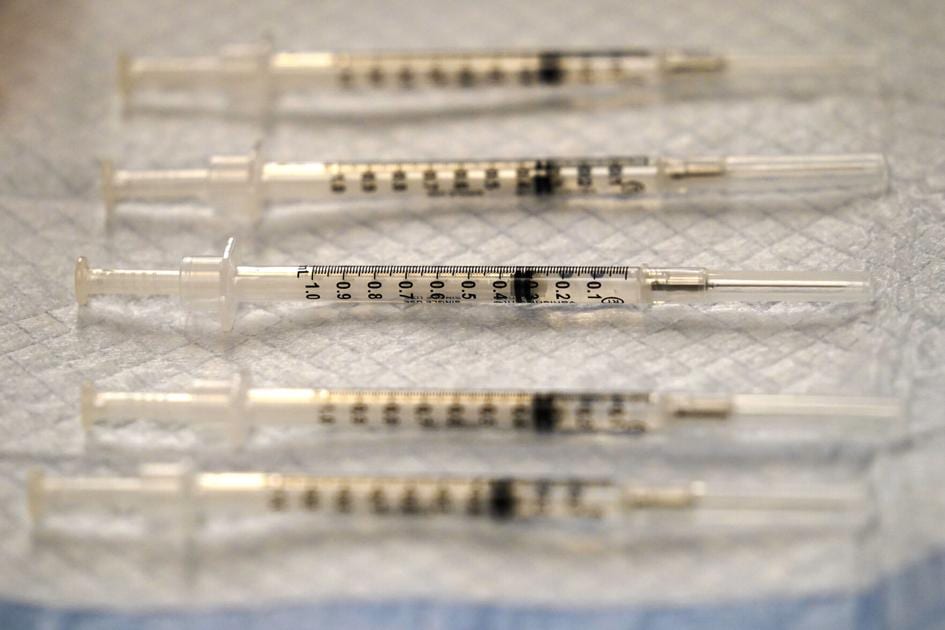Colorado is slated to receive nearly 84,000 doses of the COVID-19 vaccine next week, while receiving unanticipated doses that made up for a shortfall last week, state officials said Wednesday.
Nearly 33,000 of those doses will come from Moderna, and 51,000 from Pfizer, Colorado National Guard Brig. Gen. Scott Sherman said at a virtual news conference regarding the state’s pandemic response. Sherman leads the state’s vaccination taskforce.
About 15,000 doses of Pfizer’s vaccine will be administered to health care providers, with the rest going to long-term care facilities, whose residents and staff could begin receiving vaccinations as early as Monday, he said.
Once the state receives a shipment of Moderna vaccinations Wednesday, it should have enough to finish the vaccination of group 1A, which includes front-line health care workers and workers and residents at long-term care facilities, Sherman added.
While the state was not expecting to receive any doses of the Pfizer vaccine this week, it received more than 31,000, a “good portion” of which went to skilled nursing facilities, Sherman said.
The state was told late last week that it would receive nearly 20,000 fewer doses of the Pfizer vaccine than anticipated, but it’s now “on track” to get 3,000 more doses than expected, he said.
The state can return to the relatively low COVID-19 levels seen this summer, but it will take two or three months of sustaining prevention efforts at the level they are now, said Dr. Rachel Herlihy, an epidemiologist with the state health department — assuming there is no spike associated with potential Christmas and New Year’s gatherings.
A letup in precautions of even 10% would likely mean a delay until June, if not longer, to reach those lower levels, she added.
“We’ve made a lot of progress, but we still have a long way to go, and we still have a lot of COVID in our state right now,” said Scott Bookman, incident commander for the state’s COVID-19 response.
Officials again urged Coloradans to interact only with members of their household, refrain from traveling, and shop locally, in addition to taking the usual precautions of mask-wearing, social distancing, and handwashing.
There is no evidence that new, apparently more easily transmissible variants of COVID-19 that originated in Europe and South Africa have reached Colorado or the U.S., Herlihy said, though it’s “quite possible they are here.”
“As we learned with COVID this spring, the virus can travel rapidly with international travel,” she said, adding that state and national labs are working to sequence and look for these strains, in addition to enhancing surveillance.
In other Colorado COVID-19 news:
— Members of vaccine priority group 1B may be vaccinated if no members of priority group 1A are available and a vial is set to expire, Sherman said, because, once punctured, vials need to be used within six hours.
“A shot in the arm to anyone is certainly better than a wasted vaccine,” he said.
Priority group 1B includes moderate-risk health care workers and first responders with less direct contact with COVID-19 patients; workers in home health and hospice settings; dental workers; and paramedics, firefighters, police, correctional workers, dispatchers and those who work in funeral services.
— Bookman called the vaccine priority process “somewhat fluid” and said that, because the process involves two doses, members of group 1B will begin receiving vaccinations before all members of 1A have received their second and final dose. The process “leaves some discretion up to local public health agencies and hospitals,” he said.
— There is likely a seasonal component to COVID-19 transmission, Herlihy said, adding that cooler, less humid weather could potentially hinder the virus’ spread.
This content was originally published here.

